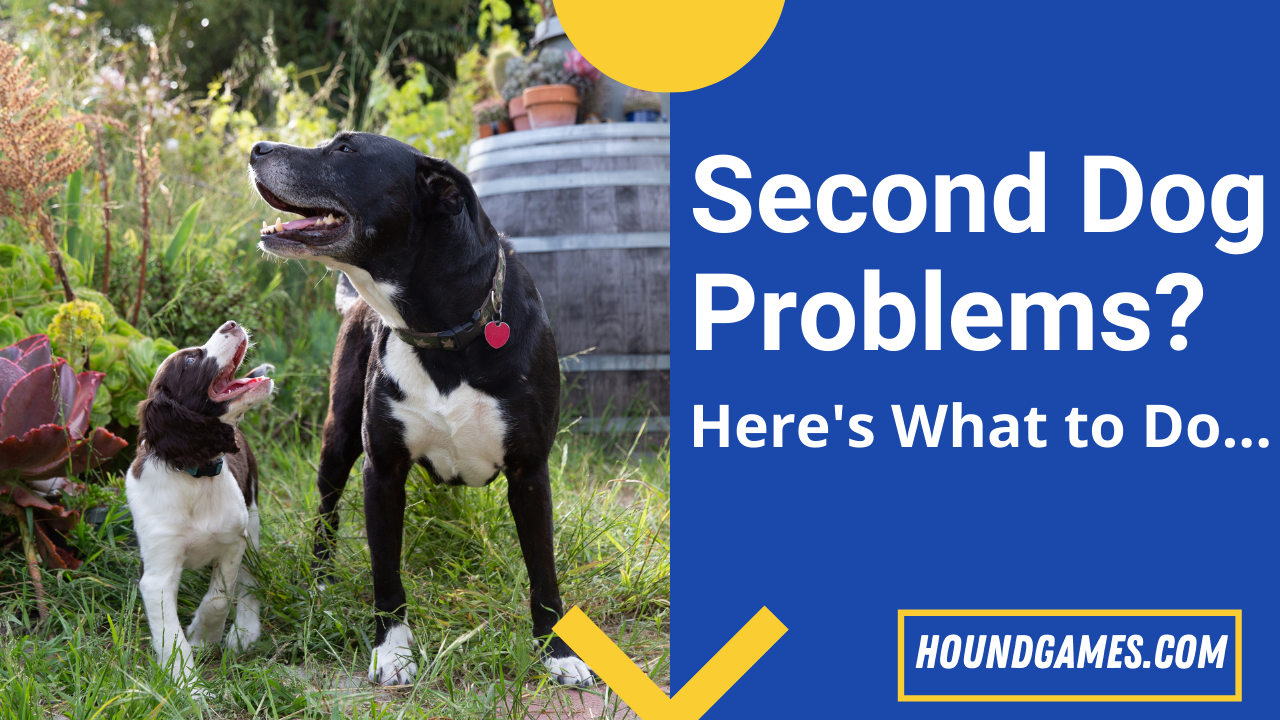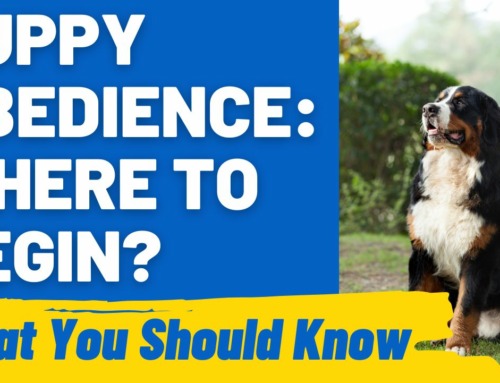Sometimes things don’t work out as planned and getting a second dog can be one of those times. You may even regret getting a second dog! With dogs, it’s not always “the more, the merrier”. In fact, you have to carefully consider whether or not getting a second dog is the best decision for you and your current dog. And if you are having issues, what can you do to make the transition better.
Two dogs and Second Dog Syndrome
Second dog syndrome is a common collection of issues that can arise when you get a new puppy in the household. These can include:
- A puppy can spend most of their time with the older dog and learn most of their bad habits, such as fence aggression, playing too rough, or misbehaving on the leash. Remember, your first dog is not a puppy-sitter!
- Pet parents may forget how much work their first dog was as a puppy and neglect to put the work into proper socialization and training in the second dog. This can cause the second dog to become fearful or aggressive. If your puppy is showing signs of anxiety and aggression, you can read our article here.
- Your older dog may be domineering or aggressive with the younger dog. This can create friction as your second grows older and cause your puppy to grow up insecure and anxious. Adult dogs may begin to fight, especially if they are of the same sex. If your older dog is depressed with the new puppy around, be sure to read Older Dog Depressed with New Puppy.
- The first dog may already be part of the household routine and has already settled into maturity. This means that a puppy entering the home with needs like potty training or boundless energy can upset the dynamic in the household and place stress on everybody involved.
Sometimes pet parents make one of two mistakes. Firstly, a wonderful first dog that fit perfectly with their lifestyle, and expected that the new puppy would be the same. This can be a shock to the system when the new arrival is nothing like the first dog.
The second possibility is that the first dog is exhausting and demanding, so one may consider a puppy as a playmate or to keep your first dog company. While most dogs are social animals and will enjoy a pack member and playmate, two dogs will still mean twice the work. This can create a situation that feels overwhelming.
Further down I share my own experience with the trouble I had with my second dog. And if you’re unsure how to have your two dogs sleeping together, be sure to read our article Second Dog Sleeping Arrangements.
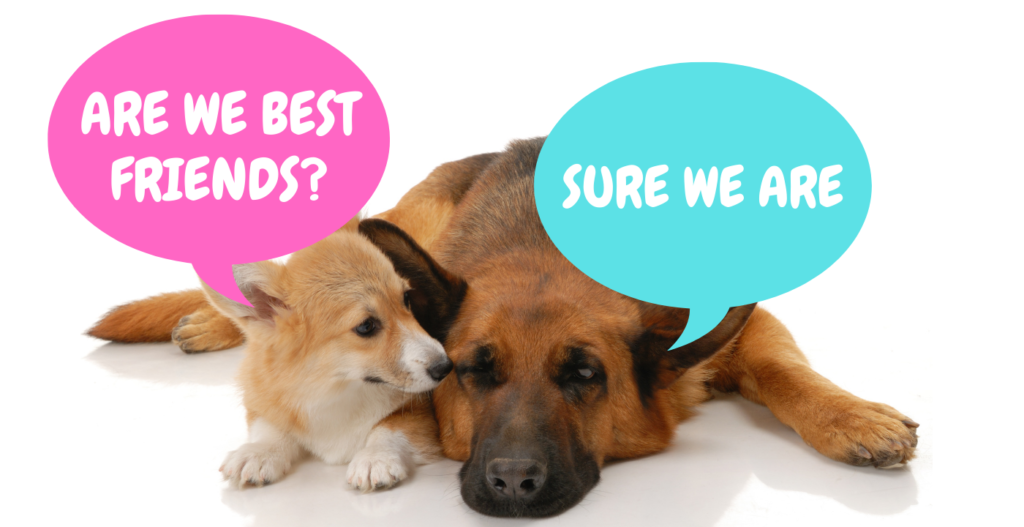
Pros and cons of two dogs
Pros
- Two dogs are double the joy and love (if they get along!).
- Playing together is great exercise, so two dogs can help keep each other physically fit.
- They can keep each other company if you are away.
- They may have an easier stay at a kennel when you go away on holiday.
- The affection and playtime between two bonded dogs reduces their stress and improves their mental health.
- If you go through a difficult time with one dog, such as an illness, having a second dog might help reduce your stress.
Cons
- The expenses of food, vet bills, gear, and maintenance will increase with two dogs.
- There is more poop to scoop!
- You need to put in more time and effort if they don’t get along, but even if they do, you still need to make sure each dog gets some alone time with you. This makes two dogs a bigger demand on your time.
- Each dog will have less space in the yard and home.
- In the event that one of them passes on, the other one may have a difficult time getting used to life without them.
- If your first dog has behavioral issues or is not social with other dogs, a second dog can cause a big problem.
- If you are currently expecting a baby or have very young children, a second puppy may be too demanding.
- Pet parents who work long hours may not be suited to the demands of a second dog.
- A second dog that comes from a more active background can be more destructive as a young dog, causing stress in the family due to destructive behaviors. Likewise, a second dog could be inclined towards dog aggression and cause conflict with your first dog once they reach puberty.
Regret getting a second dog
It may come as a surprise, but many owners can face regret when coping with a second dog. In my early twenties, I had an English Bull Terrier that was both dominant with other dogs and incredibly easy to train. We had spent several years together and gotten to know each other well, and we were settled in our ways.
I had several reasons for getting a second dog, but unfortunately, I made several rookie mistakes. For instance, I did not properly research my new puppy’s breed. A Bouvier Des Flandres is the opposite in every way to a Bull Terrier.
My second dog simply did not work the way my first dog did. He was not motivated by food or praise, and he had spent too long in the kennel with his siblings. This meant he was not inclined to bond with people, even me.
He had boundless energy and couldn’t be left alone for a second without doing something problematic, like swallowing my socks whole or raking the bin.
What’s more, my first dog, Amy, was not a happy camper. She viewed the youngster as an interloper and jealously guarded her toys and bed. Her behavior toward the puppy made me feel guilty and consider rehoming the puppy, Jeremy.
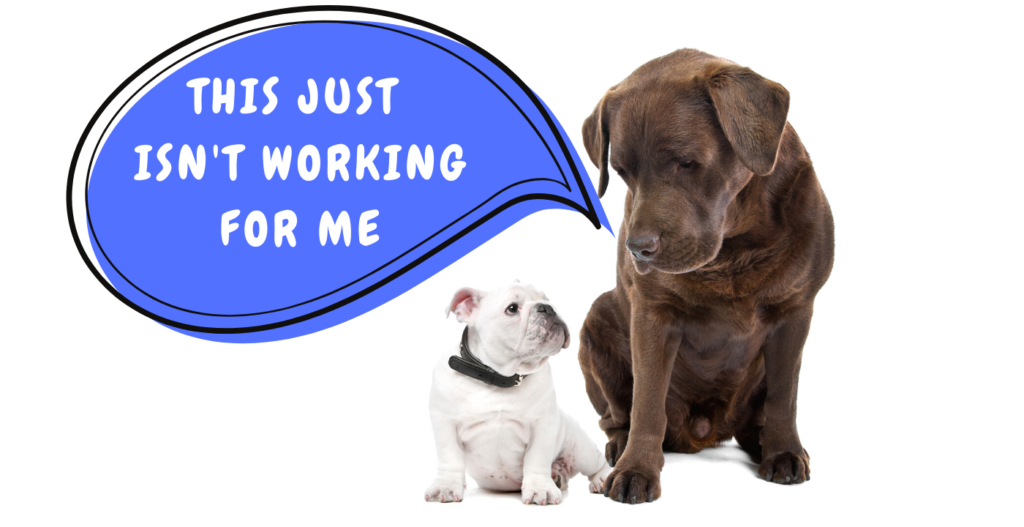
How I coped with having two dogs with different needs
Despite my doubts and guilt, I was determined to make good on my promise to provide a loving home to my new puppy. Nevertheless, the change did not happen overnight. It took a serious commitment to providing each dog with alone time with me and to their varying needs.
I also discovered that they had one thing in common: chasing a ball. This gave me something to build on regarding their relationship with each other. Playing fetch allowed the three of us to build a happier, positive dynamic. Of course, they each had to have their own ball because Amy did not share.
Ultimately, my second dog required a massive lifestyle change and a shift in my expectations. I had to learn to accommodate his extra needs for exercise and play to keep him from being destructive. In addition, I had to control the environment to stop friction with my first dog, such as not leaving toys lying around.
Most importantly, I had to learn how to motivate this strange new addition. What Jeremy would not do for a treat or all the praise in the world, he would do for a ball. Ultimately, it was up to me to make the mental shift to keep our family dynamic happy and peaceful.
You might be interested in reading Regret Getting a Puppy: Here’s What to Do
Advice for owning two dogs
Prevention is better than cure, so before you get your second dog, do some research first. But if you already have two dogs and are struggling to cope, there are a few things you can do to make owning two dogs easier!
If your new dog is still a puppy:
- Do not expect your new puppy to be like your first dog was as a puppy!
- Do not try to force or micromanage your new puppy to be perfectly trained and well behaved. Puppies take time to mature mentally, physically, and emotionally. And different puppies mature at different rates. Focus on a consistent routine and positive reinforcement for good behavior.
- Figure out and focus on what motivates your new dog because it might be different from what you are used to.
- Make lifestyle changes to accommodate their needs (schedule extra time to give your new dog more exercise, training, or playtime).
- Evaluate what you want from your new dog.
- Socialize your new puppy thoroughly. Expose them to other people and dogs so that you can take them to parks or doggy daycare for times you might need to add some space and distance between them and your first dog.
- If your first dog is much older than your new dog, do not expect them to endlessly play with the new puppy, because your older dog might not have the physical capacity.
- Supervise both dogs when they are together until the adjustment period is over.
- Your older dog may snap at your puppy to teach them social skills. It is to be expected, and supervising them will ensure things do not get out of paw. But, be ready to intervene if either dog shows signs of dominance, fear, or aggression.
- Reinforce and reward any accepting behavior your first dog shows towards the puppy.
- Make sure each dog gets time alone with you.
If you need solutions for anxiety in your dogs, you can find our recommendations here.
If you have adopted an older dog
- Make a decision to invest more time into improving the situation; with older dogs, you will need more time and patience.
- Give each dog quality alone time with you, where you do what that dog enjoys most.
- When doing activities together, choosing items where they are physically engaged will help drain their energy levels and take their focus off each other, for example, running.
- Exposing them to other dogs like in the dog park or at doggy daycare could be beneficial, but only if they are socialized to interact with other people and dogs.
- Be careful to play games where they can get competitive and jealous.
General guidelines for two dogs:
- Feed your dogs separately and make sure each one has their own food and water bowl.
- Don’t leave food or even their empty bowls out after mealtime.
- Crate train both dogs and make sure they have their own crate they can be secured in.
- Don’t present them with treats or toys simultaneously until they have proven they get along.
- Boost each dogs’ confidence by making sure they get plenty of focused love and attention.
- Use crates, pens, or even baby gates to make sure there are spaces where each dog can have some alone time.
- Don’t mix and match their toys – if it belongs to one of them, it shouldn’t be used to play with the other one.
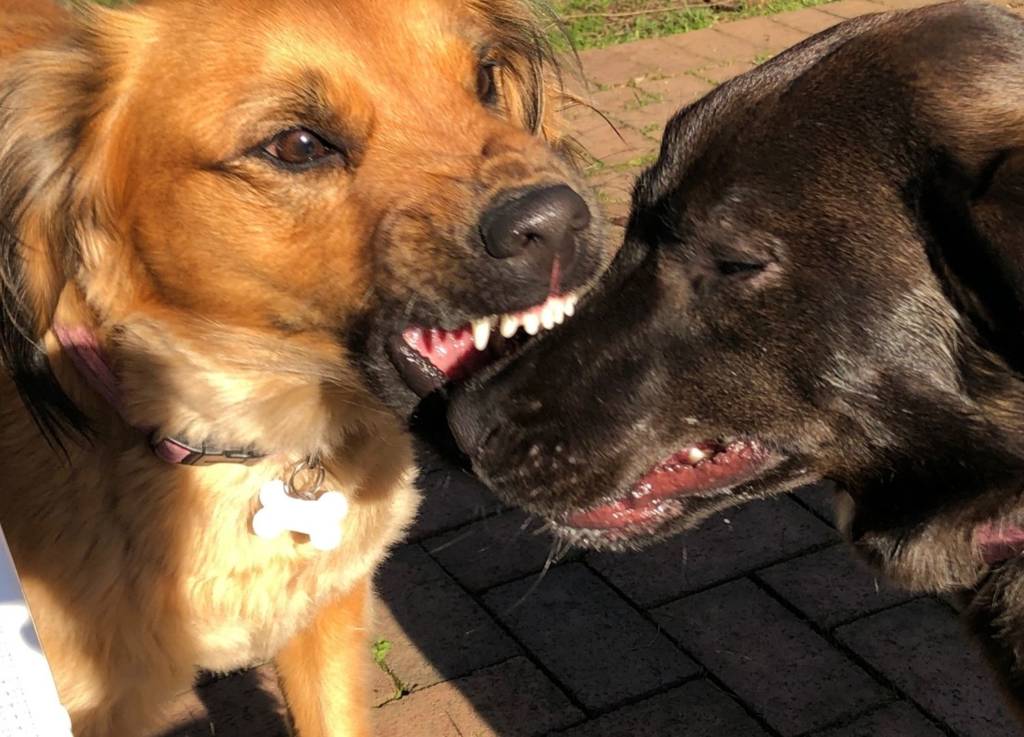
Is a second dog twice as hard?
Do not assume your second dog will be like your first dog. You might have a rigid idea of what a well-behaved dog looks like based on the experience you had with your first dog. This will lead to frustration when your methods don’t work on your new dog.
It can be twice as difficult for one person to train two young dogs at the same time, so it’s important that your current dog has already bonded with you and is completely trained. If both your dogs are young, they could bond to each other, causing their bond with you to be weaker.
It’s not always a good idea to get two dogs of the same breed. For example, if you get two dogs of a working breed, you will have to put in double the time, especially in the training phase. Both your dogs will also have the same “hardwired” behaviors, and if these are problematic behaviors, you might not be able to cope with them.
Are dogs happier in pairs?
Dogs are not always happier in pairs. Yes, they can be, but there are many variables to keep in mind. Some breeds like Huskies are known for being social. But a breed that looks nearly identical (but much bigger), like the Alaskan Malamute, can have severe problems with other dogs.
When I got my second dog, I didn’t give too much thought to how my current dog would adjust to a puppy. My current dog, Amy, is very dominant. This made the situation very stressful.
Don’t get another dog if your current dog is aggressive or fearful. Your second dog could easily learn to mimic these behaviors. Or your second dog may become an anxious dog because of it. The safety of your puppy can also be at risk if your first dog is aggressive.
Making sure your dogs have similar energy levels could help make them a happy pair. Opposite sexes also seem to get along better. Spaying and neutering is also essential.
Finally, littermates do not necessarily get along better! Especially in cases where they are of the same sex, inter-dog aggression can still be a problem with siblings.
Feeling guilty for getting a second dog
You may feel guilty for getting a second dog for various reasons.
- Your new dog is being bullied by your first dog.
- Your first dog is being bullied by your new dog, making you feel like you betrayed your first dog’s trust by bringing this “bully” into their home.
- Your first dog wants to be friends, but the second dog wants nothing to do with them or vice versa.
- You cannot invest as much time and effort into training your second dog as you did the first.
The list goes on!
Feeling guilty shows that you are aware of your dogs’ needs, and it’s a sign that it’s time to be proactive. Focus on the reason you are feeling guilty. For instance, is it because one dog wants to be friends, but the other one doesn’t? Then that is what you need to work on first.
Final word
Some breeds fit together like salt and pepper, while others are like oil and water. It’s important to do some research before you get a second dog to find out which breed complements your current dog.
If you already have two dogs, you are already committed to taking care of both. You are responsible for your dogs, and you are their family. As we know, human families also have many issues when living together, but where there is love and patience, there is progress.

